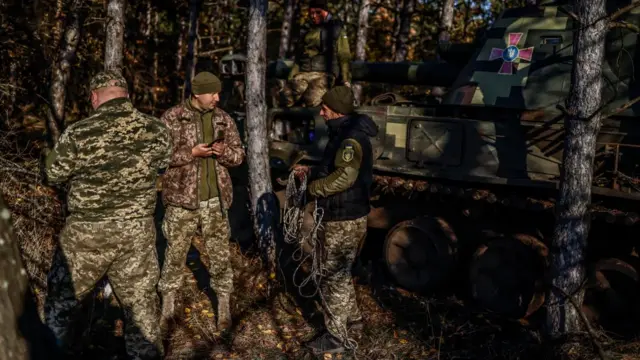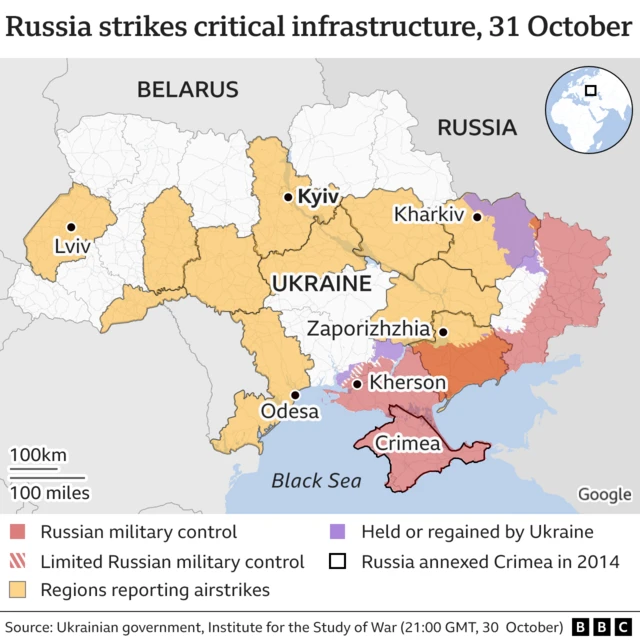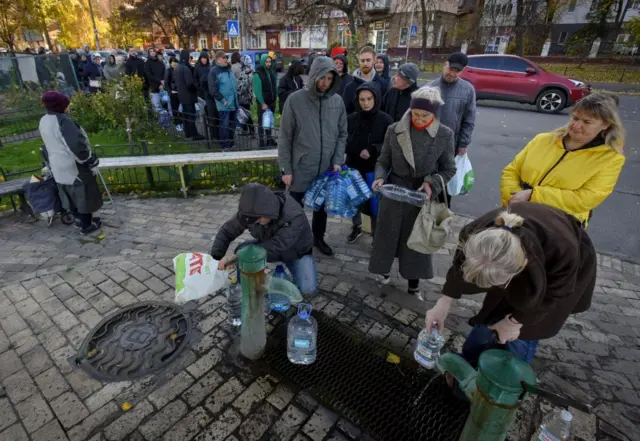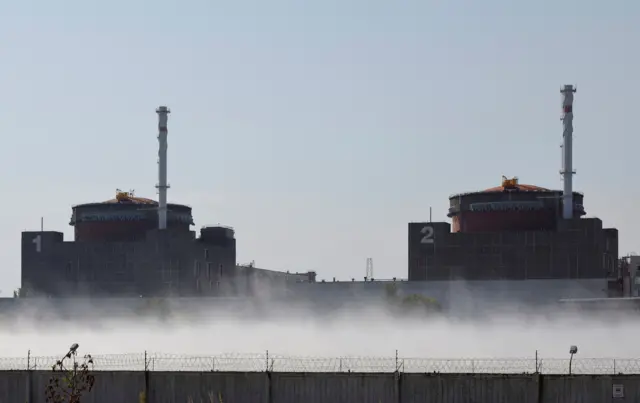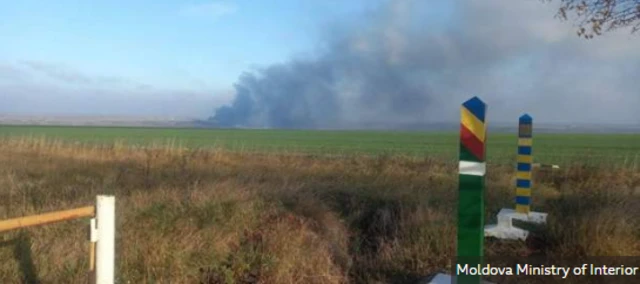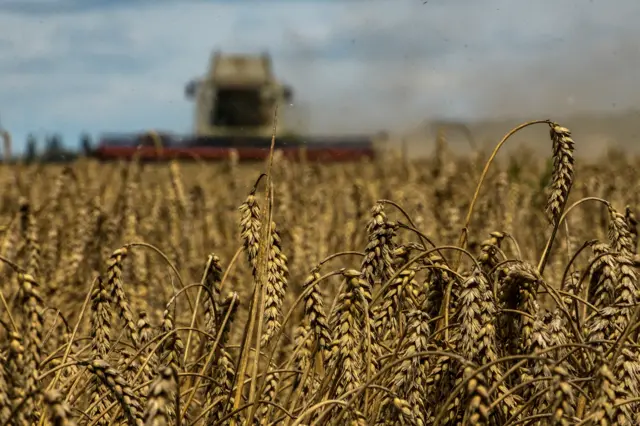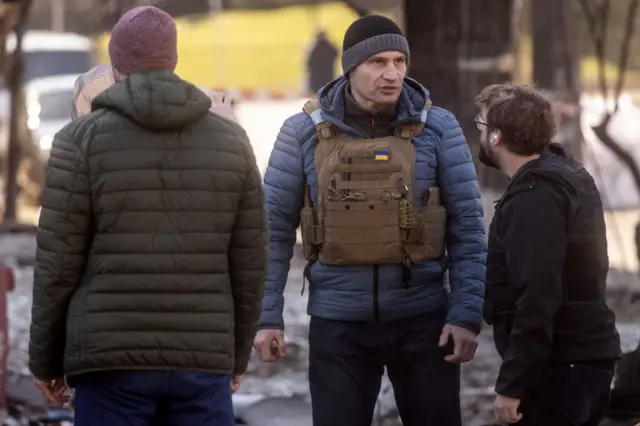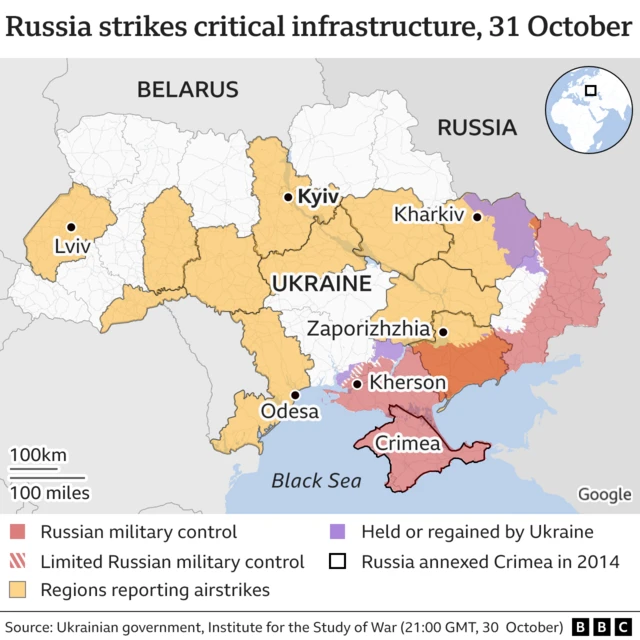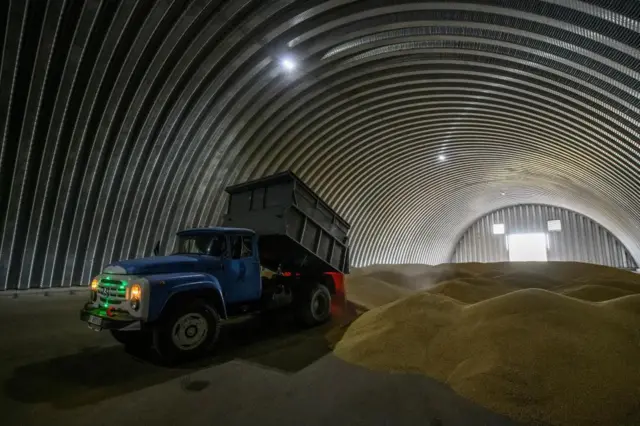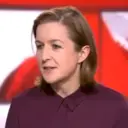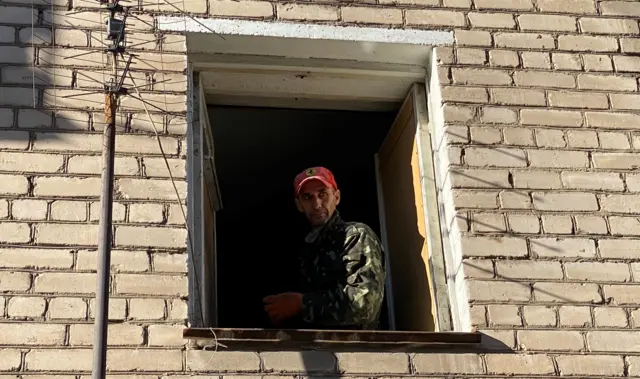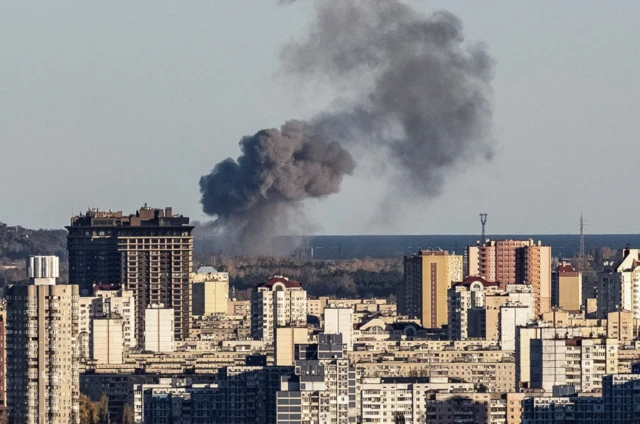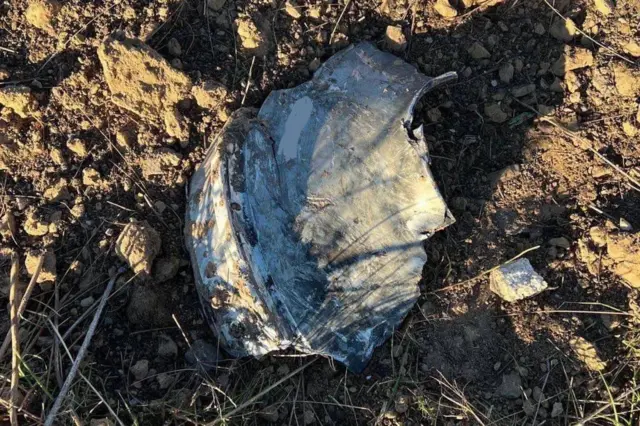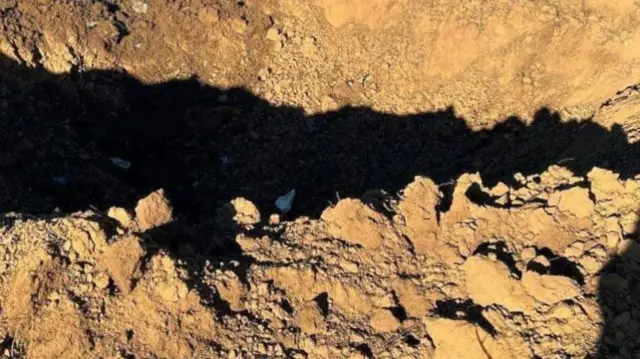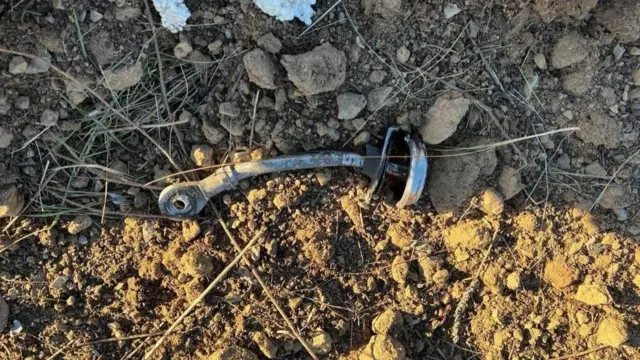Thank you for joining uspublished at 17:30 Greenwich Mean Time 31 October 2022published at 17:30 31 October 2022
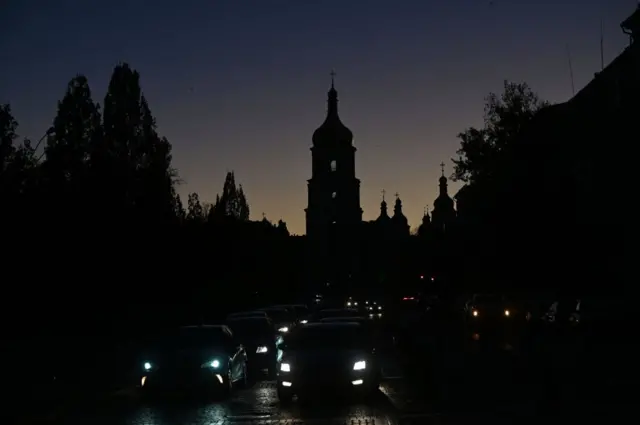 Image source, Getty Images
Image source, Getty ImagesKyiv has been plunged into darkness in the wake of the latest attacks
We're pausing our live coverage for the day, thank you for joining us. Here's a round-up of the latest developments in the Ukraine war:
- Ukraine says Russia launched a wave of missile attacks across the country including over the capital, Kyiv, where two explosions were heard
- Ukrainian air defences managed to shoot down 44 out of the 50 cruise missiles, according to the Ukrainian Air Force
- Eighty percent of Kyiv has been left without water supply after Russian missiles damaged critical infrastructure this morning, the region's mayor Vitaliy Klitschko said
- Much of the city has been plunged into darkness as streetlights have been turned off
- Missiles also hit locations in Kharkiv, Vinnytsia, Dnipropetrovsk, Zaporizhzhia and Lviv
- At least 13 people were injured in the attacks, Ukraine's national police chief Ihor Klymenko said
- A Russian missile shot down by Ukrainian air defence fell on a village in northern Moldova near its border with Ukraine, according to the Moldovan government
- Ukraine said 12 cargo ships carrying key grain exports had left ports in the country under the UN grain deal on Monday
- It comes after Russia suspended participation in the deal for an "indefinite term" on Saturday after what it said was a major Ukrainian drone attack on its Black Sea fleet in Crimea
